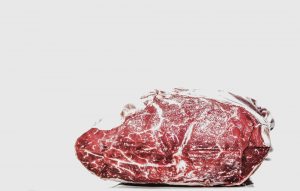Stockinette or carcase bags are a great product when it comes to stocking the meat counter for meatpacking businesses. Here’s a quick look at why meatpacking companies choose to use carcase bags for stock and how they work.
Stocks are the bulk quantities of meats, poultry, seafood, and other bulk foods that a meatpacking business will be holding onto. Carcase bags allow these stocks to be transported easily and more securely than many types of plastic bags that may otherwise be used. Carcase bags are available in several different sizes, all of which are strong enough to handle the weight of stock.
 Meatpacking businesses often have a large number of large stock deliveries coming in every day. An experienced meat packing entrepreneur knows that if these large stocks are not wrapped correctly, they can break open, spill their contents, and fall over on the floor, damaging furniture, carpeting, floors, or other items. These toppling stockings are also unsightly and detract from the decor of the meatpacking business.
Meatpacking businesses often have a large number of large stock deliveries coming in every day. An experienced meat packing entrepreneur knows that if these large stocks are not wrapped correctly, they can break open, spill their contents, and fall over on the floor, damaging furniture, carpeting, floors, or other items. These toppling stockings are also unsightly and detract from the decor of the meatpacking business.
Stockinette Bags Adelaide come in a variety of styles, shapes, and sizes. The type of stock being transported is often a determining factor in which the bag will be used to carry the stock. Carcase bags are strong enough to handle the bulkiness of the stock and will keep the contents safe.
In some cases, a carcase bag may be used for stock on the same day as the original stock pickup. It is generally done when a client wants a specific type of stock for the following day, or because a particular client ordered extra stock for delivery to a home address, school, or other location. For this reason, the purchase of the carcase bag comes with a warranty. This warranty will typically last for seven years, but it can be extended for additional periods.
Meatpacking businesses often use one variety of carcase bag for stock. It can be because they prefer a single size for large inventory, or because they want to make things easier on themselves. Stockinette Bags Adelaide make storing and transporting meat a much more pleasant experience for both the meat buyer and the stock manager.
While it is true that some packaging materials are less absorbent than others and therefore better suited for certain types of stock, they also may cause damage to other kinds of packaging materials. It is because as water and moisture accumulate within the container, these materials tend to expand or contract, causing the content within to be more fully contained.
Carcase bags work by using compression to achieve the most secure solution. Because carcase bags are used to hold meat, fish, and poultry, they are designed to trap all of the water and other liquids contained within the pack.
Clients who buy a lot of fresh meat for the home market or school lunch program want to get the most benefit from the freshness of the meat they purchase. Fresh meat, fish, and poultry are usually packaged in a carcase bag, so there is no risk of water or moisture coming into contact with other items in the bag.
The benefits of using stockinette bags to pack meat are twofold. First, the stock that is packed in the bag does not sit on the floor, attracting dust, dirt, grime, and other irritants.
Secondly, the stock that is packed in the bag helps to reduce the chance of damage to the floor of the meatpacking area. Cleaning a floor using specialized cleaning solutions such as brooms, or even one’s bare hands can take time and effort. Also, by packing the stock in a carcase bag, the risk of contamination or spillage is significantly reduced.
Stockinette bags are an excellent choice for meatpacking purposes. Using one or more carcase bags to pack the meat at your retail meatpacking store or a large grocery store will allow you to move smoothly through your day and avoid a lot of the stress that comes from dealing with items on the floor.